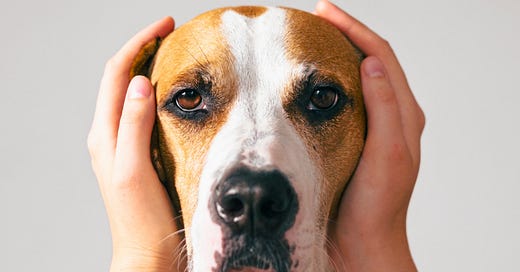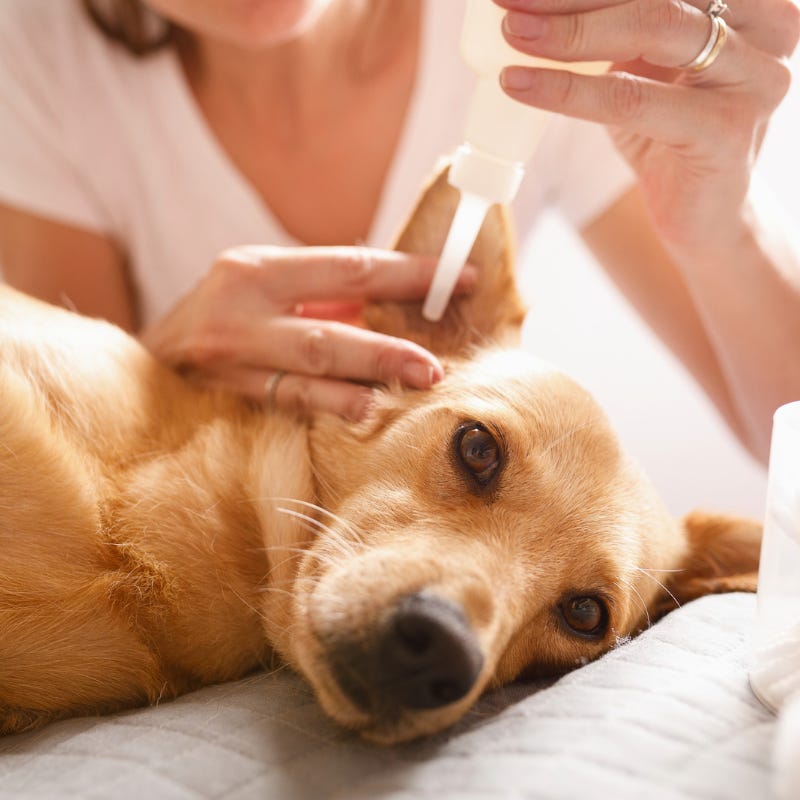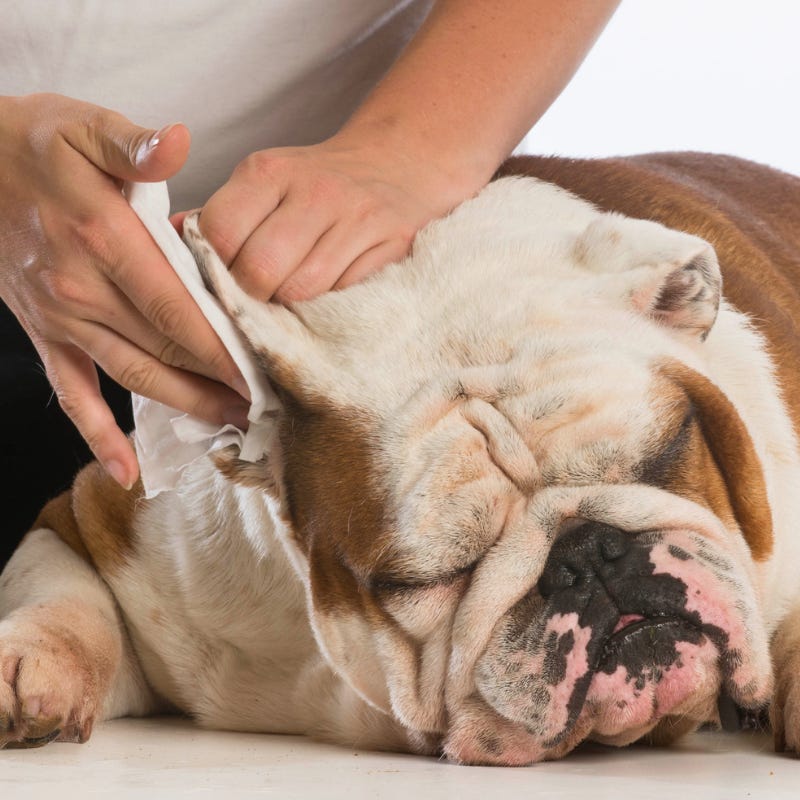Understanding, Treating, and Preventing Ear Health Issues in Dogs
Ear infections can be a common and uncomfortable issue for our canine companions.
OpenPark is your go-to source for the tools and knowledge to make well-informed choices about your pet's health.
As responsible dog owners, it's crucial to understand why dogs get ear infections, recognize the signs, and take prompt action to treat and prevent them.
In this weeks Parkevity by OpenPark, we will explore the causes behind ear infections in dogs, the importance of treating them, and steps you can take to maintain optimal ear health for your furry friend.
Understanding the Causes
Ear infections in dogs can be caused by various factors, including:
Allergies: Dogs can develop allergies to certain foods, environmental triggers (such as pollen or dust mites), or even specific materials like plastic or rubber.
Ear Anatomy: Dogs with floppy ears or excessive hair growth in the ear canal are more prone to ear infections. These factors create a warm and moist environment, ideal for the growth of bacteria and yeast.
Moisture and Foreign Bodies: Water entering the ears during baths, swimming, or excessive humidity can create a breeding ground for bacteria. Additionally, foreign objects like grass seeds or dirt can cause irritation and infection.
Recognizing the Signs
It's essential to be aware of the signs indicating an ear infection in your dog. Look out for:
Frequent scratching or pawing at the ears
Redness, swelling, or discharge from the ears
Unpleasant odor coming from the ears
Shaking of the head or tilting it to one side
Pain or sensitivity around the ears
Changes in behavior, such as irritability or decreased appetite
If you notice any of these signs, it's crucial to consult your veterinarian for a proper diagnosis and treatment.
The Importance of Treatment
Timely treatment of ear infections is crucial to prevent discomfort, pain, and potential complications. Left untreated, ear infections can lead to chronic inflammation, hearing loss, and even damage to the ear canal or eardrum. By addressing the issue promptly, you can alleviate your dog's discomfort and prevent the infection from spreading or becoming chronic.
OpenPark is dedicated to promoting pet wellness and our community offers proactive care resources to keep our furry friends healthy and happy for life.
Treating Ear Infections:
Treatment for ear infections often involves a combination of veterinary intervention and at-home care:
Veterinary Examination: Your veterinarian will perform a thorough examination of your dog's ears, possibly including an ear swab to determine the cause of the infection.
Medications: Depending on the diagnosis, your veterinarian may prescribe topical or oral medications to treat the infection, reduce inflammation, and manage any underlying causes.
Cleaning and Maintenance: Your veterinarian may recommend specific ear cleansers to help remove debris and prevent future infections. Follow their instructions carefully and maintain a regular cleaning routine to promote ear health.
Preventing Ear Infections:
Prevention is key when it comes to ear infections. Here are some preventive measures to consider:
Regular Cleaning: Regularly clean your dog's ears as recommended by your veterinarian. Use appropriate ear cleansers and follow proper techniques to avoid irritation.
Avoid Excessive Moisture: Keep your dog's ears dry, especially after bathing or swimming. Use a drying agent or gently dry the ears with a clean towel to remove excess moisture.
Allergy Management: If your dog has allergies, work with your veterinarian to identify and manage the triggers effectively. This may involve dietary changes, environmental modifications, or medication.
Grooming: Regularly groom your dog, paying attention to the ears. Trim excess hair around the ear canal to promote airflow and prevent moisture buildup.
Ear infections can be uncomfortable and detrimental to your dog's overall well-being. Understanding the causes, recognizing the signs, and seeking prompt treatment are crucial steps in ensuring your dog's ear health. By maintaining a proactive approach to ear care, including regular cleaning, taking preventive measures, and addressing any underlying issues, you can help keep your furry friend's ears healthy and infection-free.
Remember, the well-being of your dog's ears is a shared responsibility between you and your veterinarian. If you notice any signs of an ear infection or have concerns about your dog's ear health, don't hesitate to seek professional guidance. Regular check-ups and consultations with your veterinarian can help catch any potential issues early on and ensure appropriate treatment.
Check out the crowd-verified ParkShop for a curated selection of community backed products that help support your pet's wellness.
By prioritizing your dog's ear health and addressing any infections promptly, you are providing them with comfort, relief, and a higher quality of life. Healthy ears contribute to overall well-being, allowing your dog to enjoy their daily activities, interact with you and other pets, and experience the world to the fullest.
So, stay vigilant, be proactive, and remember that prevention is key. By understanding the causes of ear infections, recognizing the signs, and taking the necessary steps to treat and prevent them, you are safeguarding your beloved canine companion's ear health and providing them with a lifetime of happy and healthy ears.
Invest in your dog's long term health today, and enjoy the boundless love and joyful moments that come from having a happy and healthy furry friend by your side.
Remember,
Longevity = Healthy Habits + Time.
Don’t wait!









